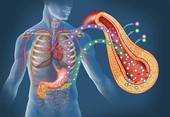Posted by The Certain Ones in Health, Healthy Living and Fitness | 3 Comments
Final Session on Diabetes: Simply Said!
Diabetes, Simply Said!
This session would bring us to the end of the relevant topic: Diabetes, Simply Said! Briefly, I would highlight the complications of Diabetes. To recall, high levels of glucose in the blood can lead to serious health problems such as heart disease and damage to the nerves eyes and kidneys. Here to elaborate;
- Diabetic neuropathy: This is when nerve damage makes it hard for your nerves to send messages to the brain and other parts of the body. The symptoms are painful, tingling or burning feelings in the lower extremities. If you have diabetes, check your feet every day. If you see swelling, redness and feel warmth in your foot, see your doctor immediately.
- Diabetic Retinopathy: This is when high glucose levels damages and weakens the small blood vessels in the retina. The retina is the part of the eye that is sensitive to light and sends messages to your brain about what you see. If retinopathy gets worse, it may lead to blindness.
3. Diabetic Nephropathy: This is when high glucose levels damages the blood vessels in your kidneys so they can’t filter out waste.
4. Heart Disease and Stroke: People who have diabetes are at greater risk for heart disease and stroke. The risk is even greater for people who have diabetes and smoke, have high blood pressure, have a family history of heart disease or are overweight.
The following tips prevent or delay diabetic complications
- Carefully follow your doctor’s instructions for taking necessary medications.
- Eat a variety of healthy foods. Avoid foods that are high in fat, cholesterol, salt and added sugar.
- Maintain a healthy weight. If you’re overweight, your doctor can give you advice on how to lose weight safely.
- Keep your blood pressure at a healthy level (below 130/80 mm Hg).
- Maintain a healthy cholesterol level (under 200 mg).
- Be physically active on a regular basis.
- Quit smoking.
- Take care of your feet and check them every day for signs of injury and infection.
- Have an eye exam every year to check your vision.
- See your dentist twice a year to check your teeth and gums.
- Stay up-to-date on your immunizations. Get flu shot each year and a tetanus booster every 10 years.
- Manage your stress.
- See your doctor regularly, even when you feel fine. Your doctor will check for early signs of complications.
It has always been known that without inspiration, the best powers of the mind remain dormant, I hope that this series on Diabetes, Simply Said! has ignited some sparks within us.
































Just what I needed, thanks a lot.
The chatclooe part: Dark chatclooe has alot of vitamin c in it, its very good. Milk and White chatclooe do not, and they both have more sugar, fat, and calories in them.
Those are some symptoms of Diabetes. but you can’t self treat. This is your life you’d be msesing with. You really need to find a dr. You may be urinating alot and getting thirsty alot because of too much sugar. Nobody can really tell you except a dr. Isn’t your life worth the money you would spend on a dr.? If you are, the drs. have samples in their office if you need to be medicated. That helps, not having to pay for meds. Someone with a Glucose meter can tell you if your sugar is high or low but they can’t deliver glucose from your Pancreas or regulate your sugar levels like the meds, you probably need, will. Please, go and spend the money, Diabetes is nothing to mess around with. There could be other things going on, also. You just don’t know! Good luck!